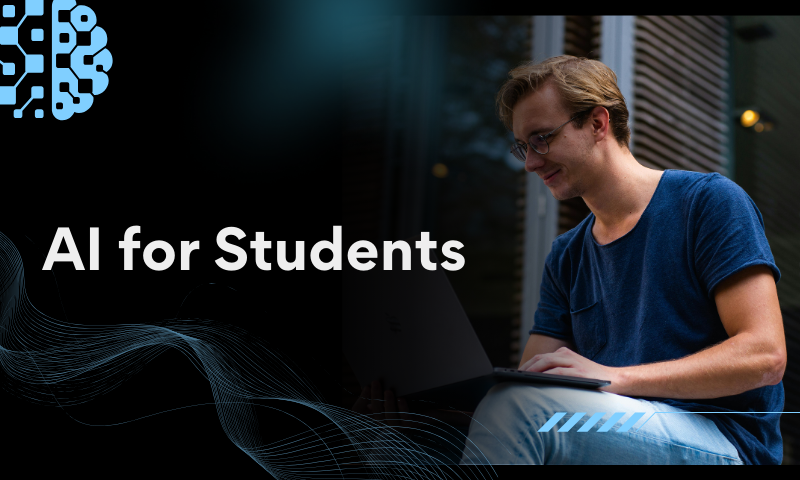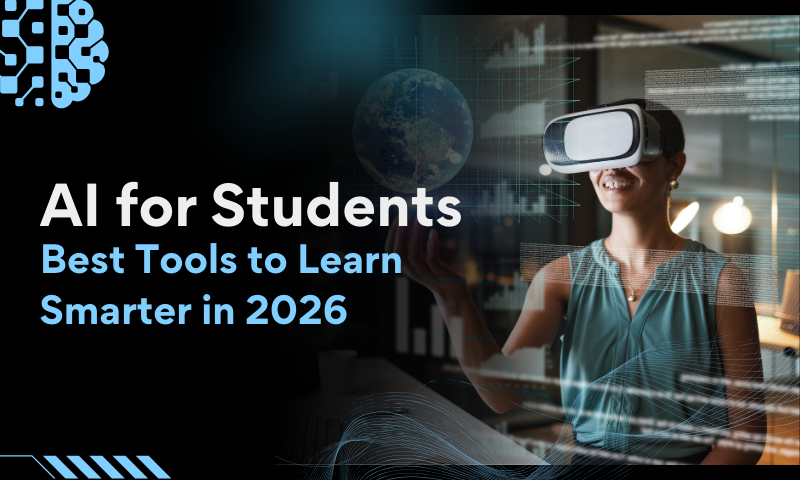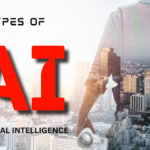Discover how AI for Students is transforming education. Learn smarter with top AI tools for studying, note-taking, research, and academic success in 2026.
In today’s fast-paced digital world, AI for Students is more than just a buzzword—it’s a game-changer in how young learners approach studying, research, and skill development. Artificial Intelligence has transformed classrooms, homework routines, and even how students prepare for exams. With AI, learners can automate repetitive tasks, get instant feedback, and access personalized resources tailored to their unique needs. Whether it’s writing assistance, language learning, or solving complex equations, AI opens up possibilities for smarter and more efficient learning.
Why AI for Students Matters in Modern Education
The rise of AI reflects a bigger shift in education toward personalized, technology-driven learning. Instead of a one-size-fits-all approach, AI tools adapt to each student’s strengths and weaknesses. This adaptability is why AI has become an essential part of modern classrooms and online learning platforms. Students no longer need to spend hours searching for the right resources—AI can instantly suggest the most relevant study material, create summaries, and even offer interactive quizzes. By incorporating AI into their daily routines, learners can save time, reduce stress, and achieve better results.

Types of AI Tools for Students
When discussing AI, it’s important to break down the types of tools available and how they can be applied in different academic situations. Here are some major categories:
- AI Writing Assistants – Tools like Grammarly, QuillBot, and ChatGPT help with grammar correction, rephrasing, and even generating essay drafts. AI in writing ensures polished, plagiarism-free assignments.
- AI Study Planners – Apps like MyStudyLife use predictive analytics to create optimized study schedules, showing how AI can improve time management.
- AI Research Assistants – Elicit and Perplexity AI help gather academic resources, analyze data, and summarize research papers, making AI a key tool for thesis and project work.
- AI Math Solvers – Tools like Photomath and Microsoft Math Solver highlight how AI can break down equations step-by-step for better understanding.
- AI Language Learning Apps – Duolingo and Elsa Speak show the global potential of AI by personalizing vocabulary, pronunciation, and grammar lessons.
More Useful Posts for You!
Benefits of AI for Students
The benefits of AI are clear: efficiency, personalization, and skill enhancement. Let’s explore these advantages in detail:
- Personalized Learning Paths – AI can track progress and adapt lessons to suit different learning speeds.
- Time-Saving Automation – With AI, tedious tasks like note-taking and referencing can be automated.
- Better Exam Preparation – AI can generate practice tests and simulate real exam conditions, proving the value of AI for Students in academic success.
- Enhanced Research Skills – By filtering out irrelevant data, AI ensures students work with the best sources.
- Improved Communication Skills – Language-focused AI tools enhance writing, speaking, and comprehension.
Best AI for Students Tools in 2025
With so many options available, choosing the right tools for AI can be overwhelming. Here’s a curated list of the best-performing tools this year:
- ChatGPT – For generating ideas, creating outlines, and answering questions.
- Grammarly – An essential AI for Students tool for grammar, tone, and clarity.
- Perplexity AI – A research powerhouse that provides verified sources.
- Quizlet – Helps students memorize concepts with AI-generated flashcards.
- Notion AI – A note-taking and productivity tool showcasing how AI can stay organized.
- Duolingo Max – A language-learning app with AI-driven adaptive lessons.
- Photomath – Solves equations while teaching the method, a prime example of AIin STEM.
How AI for Students is Changing Study Habits
The integration of AI for Students into daily study routines has drastically changed how learners interact with academic content. Before AI, studying often meant flipping through textbooks and manually creating notes. Now, AI for Students can generate concise summaries, design quizzes, and suggest study methods that match learning styles. This shift means students spend less time organizing and more time understanding concepts. Additionally, AI for Students encourages collaborative learning by enabling shared study spaces where AI organizes resources for group projects.
Potential Challenges with AI for Students
While the benefits are huge, AI for Students also comes with challenges that students and educators must address:

- Over-Reliance on AI – If students depend too heavily on AI for Students, they might lose critical thinking skills.
- Accuracy Issues – Not all AI-generated content is perfect, so students must verify information.
- Ethical Concerns – AI for Students tools can be misused for plagiarism or bypassing genuine learning.
- Data Privacy – With AI for Students apps collecting personal data, privacy becomes a concern.
- Educators should guide students to use AI for Students responsibly, focusing on skill-building rather than shortcuts.
How to Use AI for Students Effectively
To make the most of AI, learners should follow these strategies:
- Set Clear Goals – Define what you want AI to help you achieve, whether it’s better grades, faster research, or improved skills.
- Verify Information – Always cross-check facts and references generated by AI for Students.
- Combine with Traditional Learning – Use AI as a supplement, not a replacement.
- Stay Ethical – Ensure that work done with AI follows academic honesty guidelines.
- Track Your Progress – Monitor how AI for Students impacts your performance and adjust usage accordingly.
Future of AI for Students in Education
Looking ahead, AI will continue to evolve, offering even more advanced capabilities. AI will soon integrate deeply into virtual classrooms, track emotional engagement, and offer real-time tutoring in any subject. As augmented reality (AR) and virtual reality (VR) merge with AI, learning experiences will become more immersive. The future promises smart campuses where AI for Students handles everything from scheduling to personalized skill-building.
Conclusion
The role of AI in modern education cannot be overstated. From personalized study plans to instant research assistance, AI for Students empowers learners to achieve more with less effort. By combining technology with discipline, students can harness AI for Students as a lifelong learning partner. The key lies in using AI for Students wisely—balancing automation with critical thinking—to prepare for a world where AI skills are just as important as academic knowledge.






